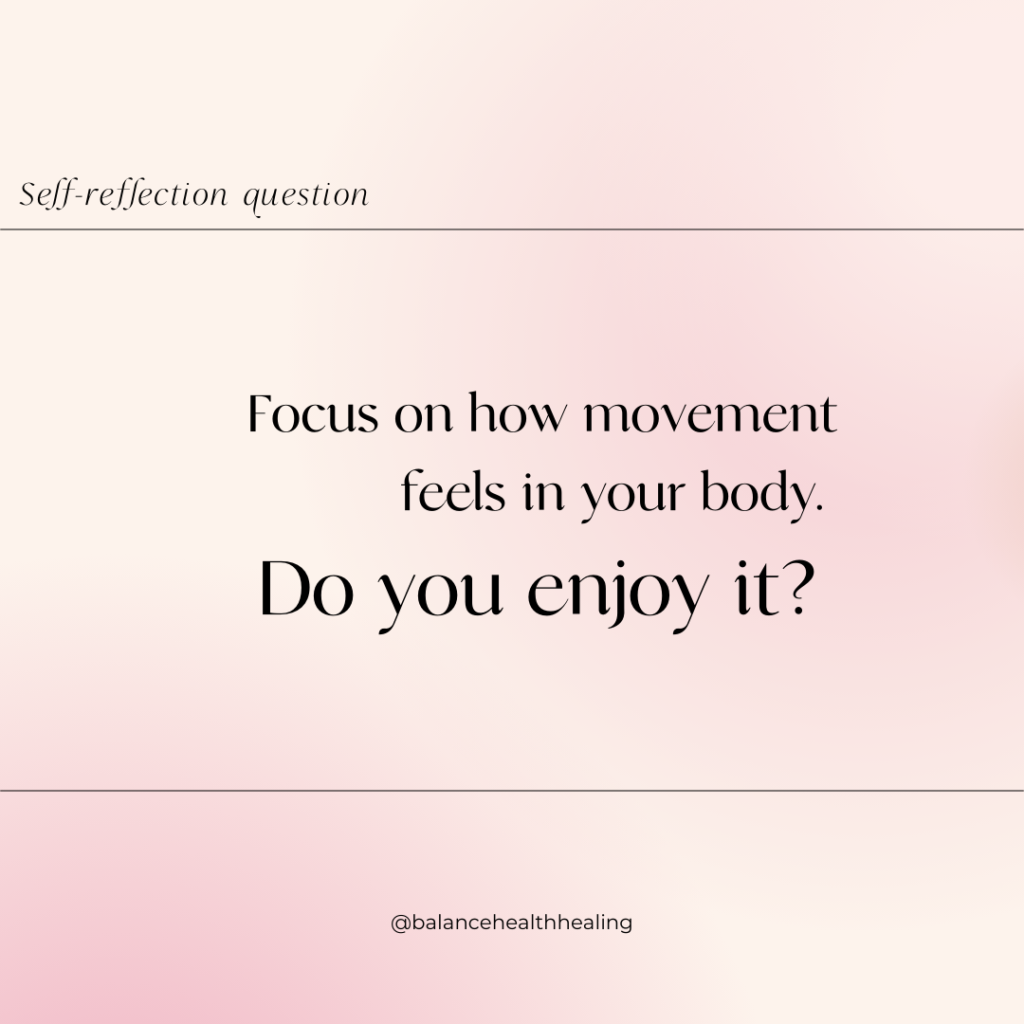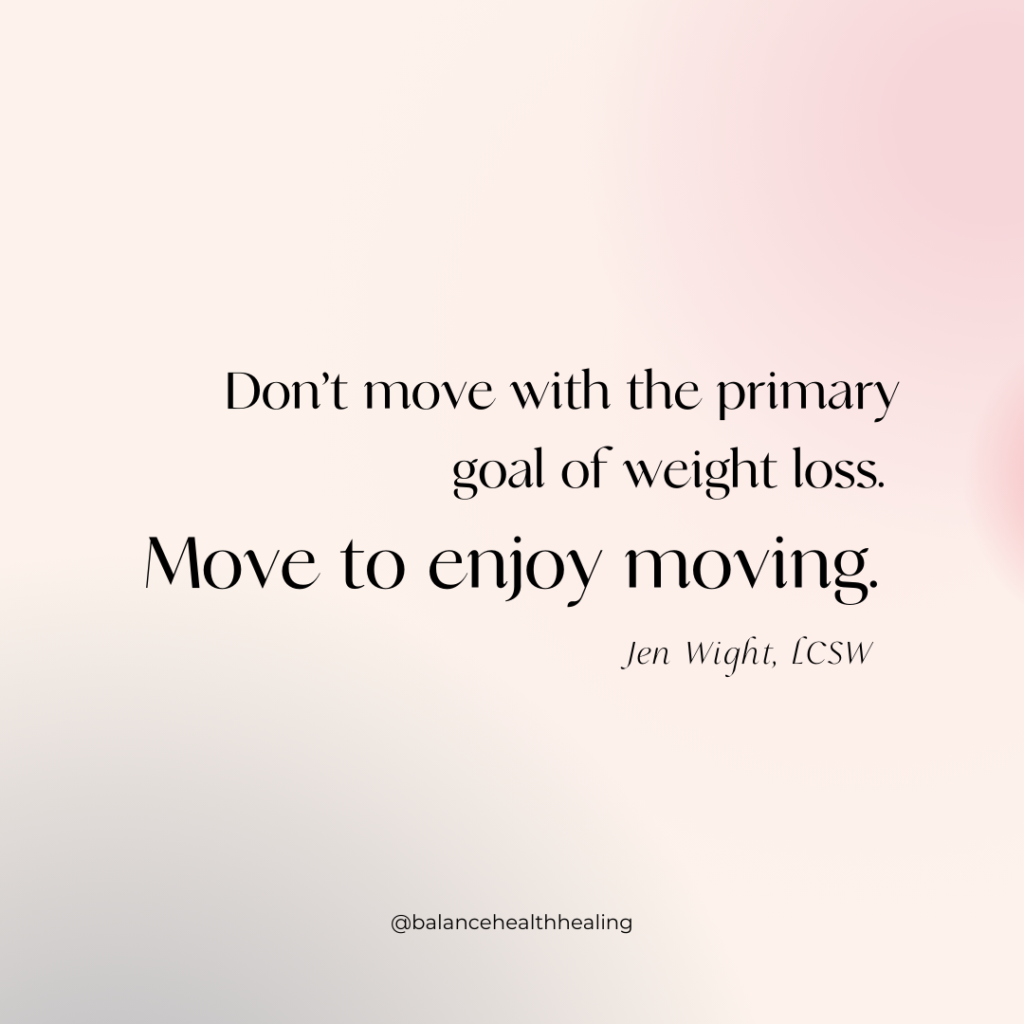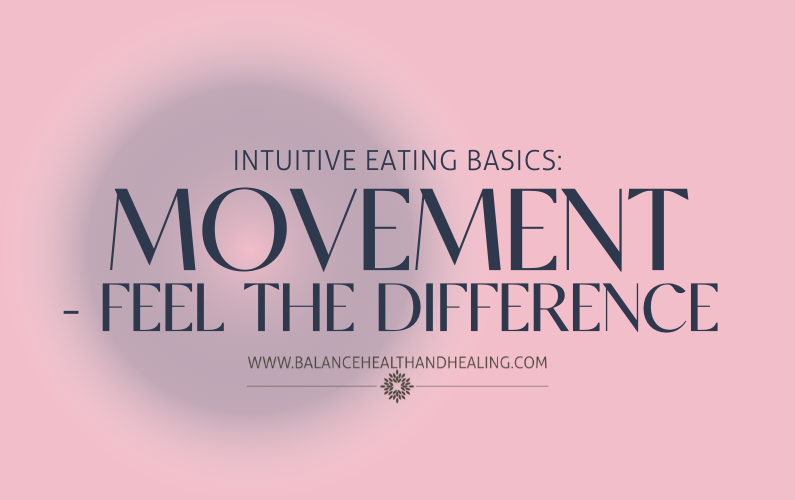When you think about exercise, what immediate reactions do you have to the concept? Does it bring to mind peaceful jogs through a park, or punitive drill sergeant style fitness coaches at the gym? Do you remember the joy of a zumba class with friends, or the distressed feeling that you are always working against the clock to get all of your steps for the day in?
class with friends, or the distressed feeling that you are always working against the clock to get all of your steps for the day in?
As we begin to examine your relationship to movement, I’d like to invite you to slow down and consider the honest answer to some of these questions:
Do I feel my worth rise and fall depending on how much or how little I exercise?
Do I feel the need to “earn” my nutrition through exercise?
Do I find myself obsessionally thinking about my step count or workout stats?
As you think about your relationship with movement, you likely see some themes begin to emerge. They may be marked by obsession, punishment, or ignoring your body’s signals; or they may be balanced, nurturing, and restorative practices. You may even notice times in your life where you have fallen more into one category than the other, depending on choice and circumstance.
Intuitive eating principle number nine is “Movement- feel the difference”. Evelyn Tribole shares with us:
“Forget militant exercise. Just get active and feel the difference. Shift your focus to how it feels to move your body, rather than the calorie burning effect of exercise. If you focus on how you feel from working out, such as energized, it can make the difference between rolling out of bed for a brisk morning walk or hitting the snooze alarm. If when you wake up, your only goal is to lose weight, it’s usually not a motivating factor in that moment of time.”
 As you reframe your relationship with your body through intuitive eating principles, we look at not only what nutritional care you are providing your body, but also what activities and movements you use your body to perform.
As you reframe your relationship with your body through intuitive eating principles, we look at not only what nutritional care you are providing your body, but also what activities and movements you use your body to perform.
While striving to ensure that your exercise falls within intuitive bounds, here are a few things to consider:
Focus on how movement feels in your body. Do you enjoy it? What would make the experience more enjoyable?
Don’t move with the primary goal of weight loss. Move to enjoy moving. Mindfully observe your exercise.
Explore movement as self-care. Few things feel as good as a yoga class at the end of a stressful day, or a boxing class after a frustrating day. How can you incorporate movement into your routines of self care?
Adequately nourish your body before, during, and after movement. Eat and drink in ways that are restorative to yourself.
Enjoying movement is a wonderful way to connect more deeply with your body and grow an appreciation for what she does for you.

